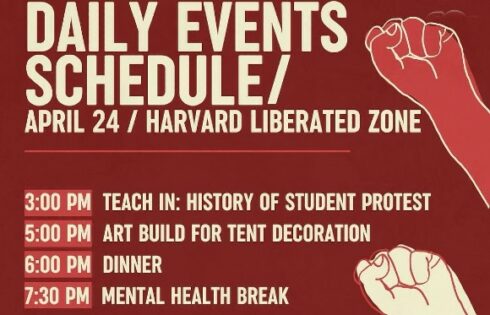
More than thirty percent of Yale students sought mental health treatment in 2021
Yale University has pressured some students with severe mental illness to withdraw and required them to reapply in order to return, The Washington Post reported Friday.
A student identified as “S.,” who suffered from trauma following a sexual assault, attempted suicide in her off-campus apartment. When she woke up in the hospital, she was told by staffers that she would need to inform the university, against her own wishes.
“S” had “heard about other students being forced to leave because of depression and suicidal thoughts, and about the lengthy, nerve-racking reapplication process,” according to The Post.
Students who take a medical withdrawal must reapply for admission in a process that includes “demonstrating that they’ve addressed their problems,” according to The Post.
Paul Hoffman, director of mental health and counseling in Yale’s health program, “strongly recommended,” on behalf of Yale, that she take a medical withdrawal.
“S” left the university. She ultimately regained admission in a reapplication process that involved taking two courses at another university.
Other suicidal students who withdrew or contemplated withdrawing did not finish their degree.
Three months earlier, a Yale freshman had killed herself on campus after contemplating the costs of withdrawal, according to her family, the newspaper reported.
A few years before that, 20-year-old Luchang Wang flew to San Francisco and jumped to her death off the Golden Gate Bridge rather than take a second medical withdrawal from the university, authorities said, according to The Post.
A fourth student, Nicolette Mántica, was told by Yale that she had “no choice but to withdraw” after being hospitalized for mental illness, The Post reported. She attempted to apply for reinstatement but ultimately decided to transfer to Northwestern University.
Other students interviewed said “they’ve learned to hide mental problems and suicidal thoughts to avoid triggering withdrawal policies that they believe are designed to protect Yale from lawsuits and damage to its reputation,” according to the Post.
Students who are forced to withdraw also face the challenges of losing their student health insurance and university-sponsored counselor, the paper stated.
“My big question was how do I get therapy,,” Alicia Abramson, another Yale student who withdrew, told The Post. “Once you’re out, they cut you off from everything.”
The Ruderman Family Foundation, an advocacy group for the disabled, evaluated mental health withdrawal policies at all Ivy League Schools. Yale received an “F,” according to its report.
“The College engages in frequent evaluation of all its policies in an effort to best serve our students,” Yale spokeswoman Karen Peart told The Post in a written statement.
Yale has a serious mental illness problem
“In recent years, Yale has also faced an ‘explosion’ in demand for mental health counseling,” according to the paper.
“Last year, roughly 5,000 Yale students sought treatment — a 90 percent increase compared with 2015,” according to the Post. “Roughly 34 percent of the 14,500 students at Yale seek mental health help from college counselors, compared with a national average of 11 percent at other universities.” Yale has hired a total of more than 50 mental health counselors to try to treat students on campus.
“Over the past year, Yale has been under increasing pressure to reform its reinstatement process” for students who have taken medical leave, The Post reported.
However, “when students are in crisis, their universities often face dueling pressures: the threat of being sued by families if a student dies by suicide, but also accusations of discrimination against those with mental disabilities if that student is forced to leave,” according to The Post.
MORE: Administrators are not your parents
IMAGE: Yale University
Like The College Fix on Facebook / Follow us on Twitter




Please join the conversation about our stories on Facebook, Twitter, Instagram, Reddit, MeWe, Rumble, Gab, Minds and Gettr.